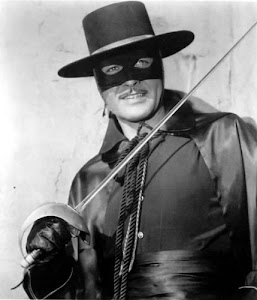 In my last blog post, available here, I began the tale of our cross country trip from Pennsylvania to Oregon. Our second day of actual driving, ended with Janelle's P.T. Cruiser sitting dead along I-70 somewhere in Missouri, necessitating a mid-trip unexpected new car purchase.
In my last blog post, available here, I began the tale of our cross country trip from Pennsylvania to Oregon. Our second day of actual driving, ended with Janelle's P.T. Cruiser sitting dead along I-70 somewhere in Missouri, necessitating a mid-trip unexpected new car purchase.We drove from Kansas City to western Kansas, then the next day to Ft. Collins, CO, where we enjoyed lunch with Janelle's niece and her husband, as well as an extensive 45-minute foray into Rocky Mountain National Park. Well, we've seen it. Let's go. (More on that another time -- RMNP is one of our favorite places in the world; it was where we honeymooned 29 years ago, and we hated having to cut our visit short.) From Colorado we drove north into Wyoming, where we reconnected with friends in Casper, before heading out for Yellowstone. We actually got to spend an entire day at Yellowstone, thanks to the gracious offer of a cabin just across the Idaho line from the West Yellowstone park entrance. When it was time to get back on the road, we headed across Idaho on US-20. We stopped at a rest area in the middle of nowhere, and this time, my truck wouldn't start. I found it ironic that we were across the street from a nuclear power facility, but I didn't have enough juice to start my truck! Another tow, another diversion from our schedule, and at 3:30 Friday afternoon (October 10th), we started out on our final 580 miles to Portland. We were bound and determined we were going to get to our destination that day, and even though it was about 1:30 a.m. before we arrived, as far as we're concerned, it still counts.
Okay, now bear with me (a little Yellowstone reference there).
We needed a new car. The dealership was very gracious, but still expected payment. If we couldn't have arranged financing, we would have limped along in Janelle's P.T., hoping and praying it would make it to Oregon. If the dealer had said, You can pay the $20K for the new car, OR you can recite the 23rd Psalm, we would have chosen the easier of the two and started our recitation. But the dealer didn't say that. There were financing options, but we still had to pay for the car. The deal is, if offered two ways of accomplishing something, we're going to choose the easiest way that still gets for us what we want.
When Jesus was tempted in the wilderness, Satan offered, If you will bow down and worship me, I will give you all these things (Matthew 4:9). He was saying, You don't have to go through with the cross and pain thing; just bow down to me and I'll give you the kingdoms of the world.
Just after Peter confessed the lordship of Christ, Jesus explained his coming arrest and execution. Peter got in his face and said, Those things will never happen to you (Matthew 16:22). Jesus rebuked him.
Satan and Peter were both offering Jesus kingship without suffering, lordship without paying the redemption price.
Go to Gethsemane. Abba, take away this cup of suffering. But do what you want, not what I want (Mark 14:36).
If there were an easier way to provide our redemption, Jesus would have taken it, but there wasn't. If righteousness could be gained through the law (or any other way, for that matter), Christ died for nothing (Galatians 2:21).
Savior, thank you for paying the price, and for not settling for a more comfortable route that wouldn't have accomplished what was accomplished through your shed blood.
We talked about the necessity of the cross on Sunday, asking, Why did Jesus have to die? This week we'll be discussing the sufficiency of the cross, asking the question, Was the cross enough?
Are you putting the full weight of your expectations for abundant and eternal life on Christ and his sacrificial death? If you're betting on anything else, you're betting on the wrong thing.
 I've been enjoying our New Year's teaching series: Getting Off to a Good Start. Two Sundays ago we discussed the importance of Leaving Last Year's Baggage Behind. If we want to have an effective 2009, we cannot allow unforgiveness from 2008 to drag us down. Today, our teaching was Jesus' Job Description. In some ways the Jubilee language of Luke 4:18,19 can only be applied to Jesus. He was the only one who could provide the Jubilee release described by Isaiah. But while this is Jesus' job description, we have to remember that we are Christ's body. We are called to co-mission with him in releasing the poor from their poverty, the prisoners from their chains, the blind from their darkness, the oppressed from their worries and the shamed from their condemnation.
I've been enjoying our New Year's teaching series: Getting Off to a Good Start. Two Sundays ago we discussed the importance of Leaving Last Year's Baggage Behind. If we want to have an effective 2009, we cannot allow unforgiveness from 2008 to drag us down. Today, our teaching was Jesus' Job Description. In some ways the Jubilee language of Luke 4:18,19 can only be applied to Jesus. He was the only one who could provide the Jubilee release described by Isaiah. But while this is Jesus' job description, we have to remember that we are Christ's body. We are called to co-mission with him in releasing the poor from their poverty, the prisoners from their chains, the blind from their darkness, the oppressed from their worries and the shamed from their condemnation.













 This is a picture of Janelle's dad Paul A. Freeland when he was at Anderson College preparing for the ministry. We really wanted pictures of how we remembered our dads, but the pictures we were sent were of how our moms remembered their husbands. In a sense, we were not only honoring our dads through including their pictures, but honoring our moms, too, by using the pictures that spoke to their hearts.
This is a picture of Janelle's dad Paul A. Freeland when he was at Anderson College preparing for the ministry. We really wanted pictures of how we remembered our dads, but the pictures we were sent were of how our moms remembered their husbands. In a sense, we were not only honoring our dads through including their pictures, but honoring our moms, too, by using the pictures that spoke to their hearts.  Following that was a short skit by two of our seniors, Don and Effie Clark. They were an old married couple (type casting?) doing some gardening. Don was not into it, and Effie explained that taking care of a garden reminded her of the way God takes care of his children by keeping the bugs away (temptations), weeding us (from the busy-ness of life), and fertilizing us (with the Word of God). They did a great job, but brought some friends... ants... big black ones... thousands of them... well, maybe three or four.
Following that was a short skit by two of our seniors, Don and Effie Clark. They were an old married couple (type casting?) doing some gardening. Don was not into it, and Effie explained that taking care of a garden reminded her of the way God takes care of his children by keeping the bugs away (temptations), weeding us (from the busy-ness of life), and fertilizing us (with the Word of God). They did a great job, but brought some friends... ants... big black ones... thousands of them... well, maybe three or four.


